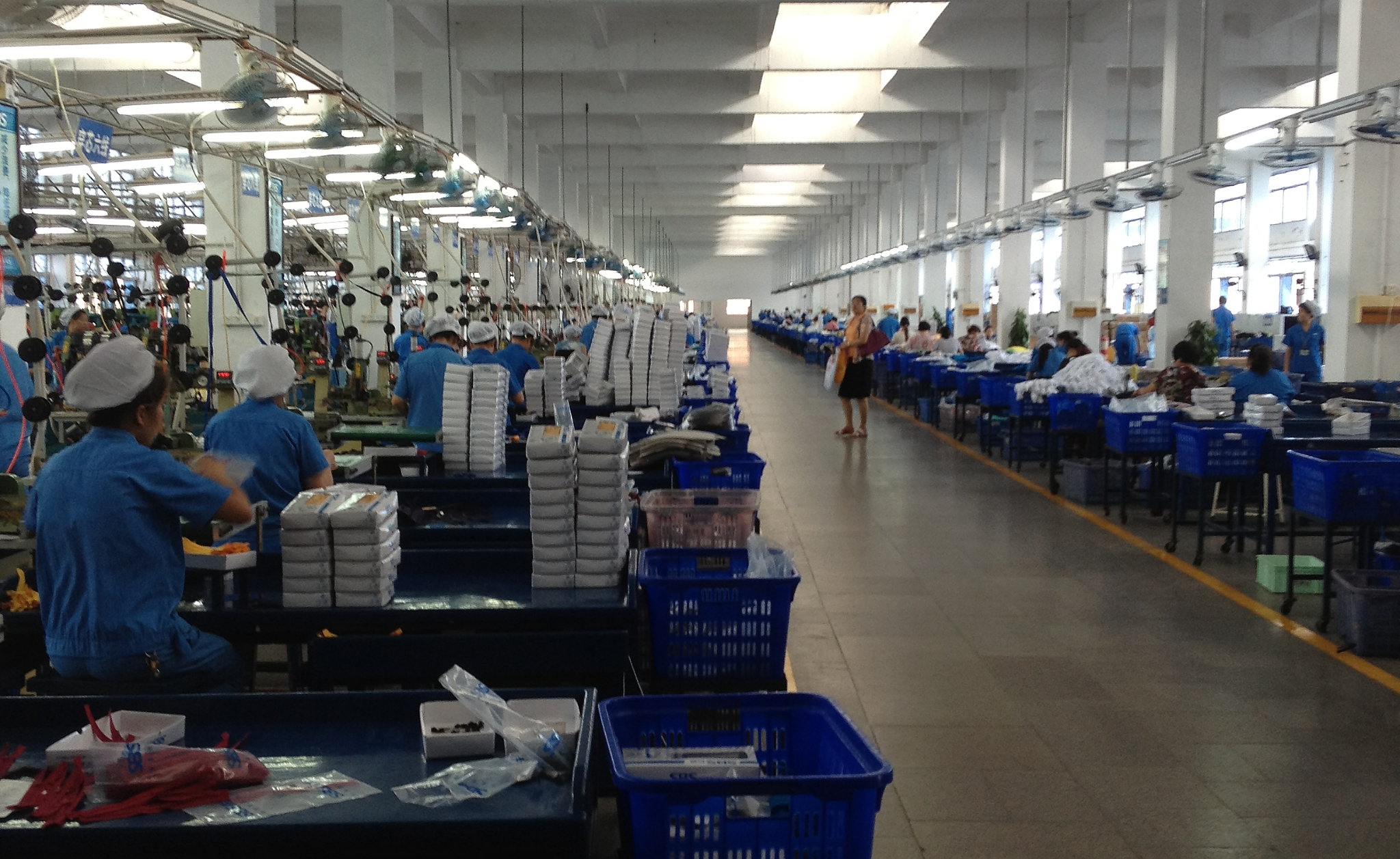 A textile factory in China. Photo by UN Asia and the Pacific.
A textile factory in China. Photo by UN Asia and the Pacific.
To Hold China Accountable, Washington is Cracking Down on Temu
In a conversation with CCP officials on Friday, Treasury Secretary Janet Yellen stated that U.S. legislation regarding China is “narrowly targeted,” “premised on straightforward national security considerations,” and “not undertaken for economic advantage.” Her reassurances are unlikely to land; Washington is currently deliberating over 300 new bills on China, from cutting CCP access to social media to ending normal trade relations completely. Spurned by investigations of Chinese-owned firm Temu, one bipartisan proposal aims to address forced labor in Xinjiang by curbing the de minimis provision for imports entering the United States. As human rights become the newest tool in the trade war with Beijing, Washington should ensure its existing mechanisms are functional—and adequately funded—before making broad changes to U.S. trade policy.
To parse the flood of new legislation, only one buzzword is needed: Temu. The current market leader in the global fast fashion industry, Temu sells rapidly-produced Chinese textiles at hypercompetitive prices. To undercut competitors like Amazon, Shein, and Alibaba, the firm applies stringent cost-cutting measures in staffing and oversight and invests millions in giveaways and deep discounts. The model works; with over 400,000 shipments to the U.S. daily, it is currently the most popular shopping app in the U.S.
The demand for increasingly competitive prices makes fast fashion an industry rife with labor abuses, and Temu is no exception. In April 2023, the U.S.-China Economic and Security Review Commission uncovered multiple credible instances of forced labor in violation of The Uyghur Forced Labor Prevention Act (UFLPA), which prevents importing products from labor camps in China’s oppressed Xinjiang Uyghur Autonomous Region. In its June 22nd report, the Committee on Strategic Competition with China reinforced that Temu had no mechanisms to identify products from Xinjiang, which “all but guarantees that […] Temu products made with forced labor are entering the United States on a regular basis.”
Rather than going through the U.S. Customs and Border Protection Trade Office (CBP), legislators are joining social justice advocates in proposing to cut or reduce the de minimis provision, which allows straight-to-consumer imports valued at $800 or less to enter the U.S. duty-free. Raised from $200 in 2016 to promote free trade and reduce costs on the private sector, lowering the limit would force Temu—and all other global firms—to declare and pay taxes on millions of additional daily imports. Human rights activists support this policy because improving oversight of international supply chains is a crucial United Nations best practice for curbing slave labor. For conservatives, the amendment is another avenue to promote US economic competition, as The Committee estimates that more than half of all packages shipped to the U.S. under the de minimis rule come from China.
Reducing the disparity in de minimis limits between the United States and the rest of the world would require bolstering mechanisms that monitor and enforce import policy. While Section 307 of the Tariff Act of 1930 prohibits importing any product derived from forced labor, only eight companies are currently under seizure orders by the CBP. While the new spotlight on Chinese supply chains has increased shipment seizures by 44%, monitoring an additional 685 million annual de minimis packages would increase the burden on investigative authorities by over 1,740%. Taxing importers could help fund these operations, but doing so would require enhancing the capacity of the IRS, running counter to current proposals to cut the department’s budget in half. Once implemented, the additional checks would slow trade with U.S. allies at the same rate as its competitors. While the strategy is effective at preventing imports of forced labor, failing to consider the downstream mechanisms of cutting the de minimis rule could result in serious gaps between what the U.S. says it will do and what it can do.
There are alternatives to the de minimis amendment if policymakers want to hold China accountable for labor abuses—but they need to be enforced multilaterally. Both the FABRIC Act and Slave-Free Business Certification Act allow Washington to maintain leadership in the fight against forced labor without slowing trade relations with ethical U.S. partners. However, in conversations with American Security Project, cosponsors of the FABRIC Act mentioned they face opposition from legislators in favor of more targeted pressure on China. Selective emphasis on China signals to allies and the CCP that U.S. values aren’t as important as how they can be leveraged against a competitor, damaging its credibility as a labor rights leader. State-targeted policies would also not be effective in curbing forced labor, as fast fashion firms would simply move to other markets such as Bangladesh or Myanmar.
While innovative solutions to curb China’s economic overreach are more buzzworthy than budget supplementals, policy proposals in this year’s 118th Congress skew far from the “narrow targets” that Treasury Secretary Yellen emphasizes as foundational to good China policy. Continuing to introduce new industrial controls when existing mechanisms struggle to meet capacity can damage U.S. credibility, reduce economic competitiveness, and undermine efforts to hold belligerent states accountable. Due diligence legislation can fit within a cohesive strategy to safeguard human rights globally, but whether the goal is to enforce those norms or pressure Beijing, Washington should be willing to commit.





